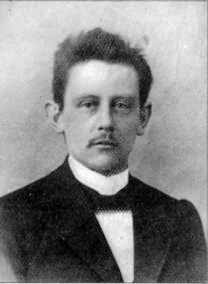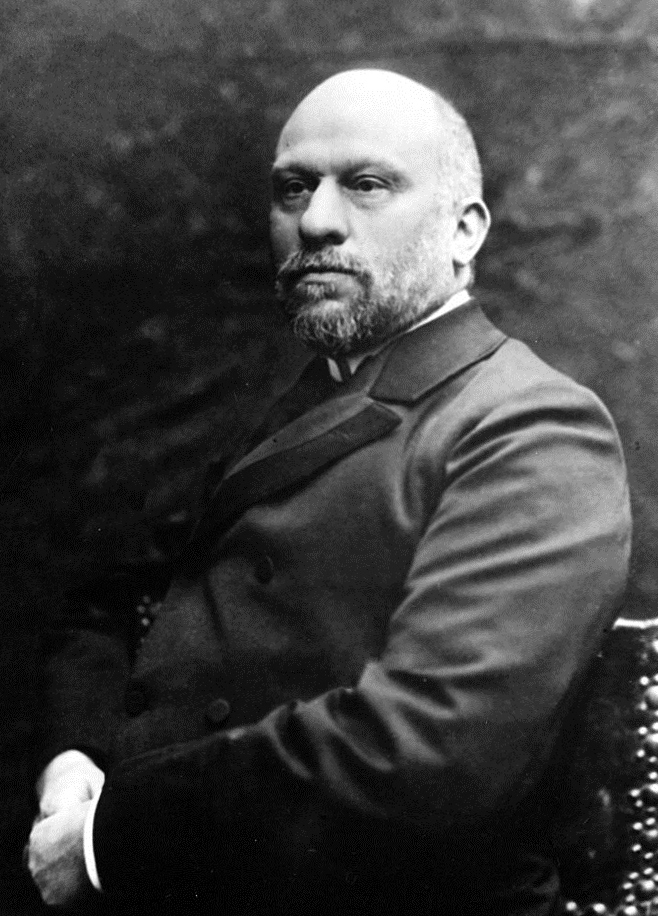|
Kristian Birch-Reichenwald Aars
Kristian Birch-Reichenwald Aars (25 September 1868 – 4 August 1917) was a Norwegian academic. Originally educated as a theologian, he soon switched to philosophy and psychology. Personal life He was born in Christiania as a son of educator Jacob Jonathan Aars (1837–1908) and his wife Anna Ernesta Birch-Reichenwald (1838–1919). He was the brother of architect Harald Aars, and a grandson of Christian Birch-Reichenwald. He was also a grandnephew of priest and politician Jens Aars and a second cousin of writer Sophus Christian Munk Aars. Between 1895 and 1910 he was married to Marna Aall (1873–1948). During that time he was a brother-in-law of Anathon Aall and Herman Harris Aall. Anathon Aall biographed him in the first volume of the first edition of the biographical dictionary ''Norsk biografisk leksikon''. In a later marriage, Marna Aall became mother-in-law of astronomer Rolf Brahde. Career Aars finished his secondary education in 1887, and graduated from the Roya ... [...More Info...] [...Related Items...] OR: [Wikipedia] [Google] [Baidu] |
Examen Artium
Examen artium was the name of the academic certification conferred in Denmark and Norway, qualifying the student for admission to university studies. Examen artium was originally introduced as the entrance exam of the University of Copenhagen in 1630. The University of Copenhagen was the only university of Denmark-Norway until The Royal Frederick University in Christiania was founded in 1811. In Norway, examen artium was formally discontinued after the 1982 class (but the term is still sometimes used informally to denote the diploma from today's "videregående skole"). Norway Typically after their tenth and final year of compulsory primary school education, students applied for admission to a three-year programs of studies, called "lines" at schools called ''gymnas'' within their counties. The curricula for the lines included a core of general studies topics, including Norwegian, mathematics, history, English, physical education, and one natural science subject. The curricula ... [...More Info...] [...Related Items...] OR: [Wikipedia] [Google] [Baidu] |
1917 Deaths
Events Below, the events of World War I have the "WWI" prefix. January * January 9 – WWI – Battle of Rafa: The last substantial Ottoman Army garrison on the Sinai Peninsula is captured by the Egyptian Expeditionary Force's Desert Column. * January 10 – Imperial Trans-Antarctic Expedition: Seven survivors of the Ross Sea party were rescued after being stranded for several months. * January 11 – Unknown saboteurs set off the Kingsland Explosion at Kingsland (modern-day Lyndhurst, New Jersey), one of the events leading to United States involvement in WWI. * January 16 – The Danish West Indies is sold to the United States for $25 million. * January 22 – WWI: United States President Woodrow Wilson calls for "peace without victory" in Germany. * January 25 ** WWI: British armed merchantman is sunk by mines off Lough Swilly (Ireland), with the loss of 354 of the 475 aboard. ** An anti-prostitution drive in San Francisco occurs, and police ... [...More Info...] [...Related Items...] OR: [Wikipedia] [Google] [Baidu] |
1868 Births
Events January–March * January 2 – British Expedition to Abyssinia: Robert Napier leads an expedition to free captive British officials and missionaries. * January 3 – The 15-year-old Mutsuhito, Emperor Meiji of Japan, declares the ''Meiji Restoration'', his own restoration to full power, under the influence of supporters from the Chōshū and Satsuma Domains, and against the supporters of the Tokugawa shogunate, triggering the Boshin War. * January 5 – Paraguayan War: Brazilian Army commander Luís Alves de Lima e Silva, Duke of Caxias enters Asunción, Paraguay's capital. Some days later he declares the war is over. Nevertheless, Francisco Solano López, Paraguay's president, prepares guerrillas to fight in the countryside. * January 7 – The Arkansas constitutional convention meets in Little Rock. * January 9 – Penal transportation from Britain to Australia ends, with arrival of the convict ship ''Hougoumont'' in Western Aus ... [...More Info...] [...Related Items...] OR: [Wikipedia] [Google] [Baidu] |
Asthma
Asthma is a long-term inflammatory disease of the airways of the lungs. It is characterized by variable and recurring symptoms, reversible airflow obstruction, and easily triggered bronchospasms. Symptoms include episodes of wheezing, coughing, chest tightness, and shortness of breath. These may occur a few times a day or a few times per week. Depending on the person, asthma symptoms may become worse at night or with exercise. Asthma is thought to be caused by a combination of genetic and environmental factors. Environmental factors include exposure to air pollution and allergens. Other potential triggers include medications such as aspirin and beta blockers. Diagnosis is usually based on the pattern of symptoms, response to therapy over time, and spirometry lung function testing. Asthma is classified according to the frequency of symptoms, forced expiratory volume in one second (FEV1), and peak expiratory flow rate. It may also be classified as atopic or non-atopic, ... [...More Info...] [...Related Items...] OR: [Wikipedia] [Google] [Baidu] |
Epistemology
Epistemology (; ), or the theory of knowledge, is the branch of philosophy concerned with knowledge. Epistemology is considered a major subfield of philosophy, along with other major subfields such as ethics, logic, and metaphysics. Epistemologists study the nature, origin, and scope of knowledge, epistemic justification, the rationality of belief, and various related issues. Debates in epistemology are generally clustered around four core areas: # The philosophical analysis of the nature of knowledge and the conditions required for a belief to constitute knowledge, such as truth and justification # Potential sources of knowledge and justified belief, such as perception, reason, memory, and testimony # The structure of a body of knowledge or justified belief, including whether all justified beliefs must be derived from justified foundational beliefs or whether justification requires only a coherent set of beliefs # Philosophical skepticism, which questions the possibili ... [...More Info...] [...Related Items...] OR: [Wikipedia] [Google] [Baidu] |
Experimental Psychology
Experimental psychology refers to work done by those who apply experimental methods to psychological study and the underlying processes. Experimental psychologists employ human participants and animal subjects to study a great many topics, including (among others) sensation & perception, memory, cognition, learning, motivation, emotion; developmental processes, social psychology, and the neural substrates of all of these. History Early experimental psychology Wilhelm Wundt Experimental psychology emerged as a modern academic discipline in the 19th century when Wilhelm Wundt introduced a mathematical and experimental approach to the field. Wundt founded the first psychology laboratory in Leipzig, Germany. Other experimental psychologists, including Hermann Ebbinghaus and Edward Titchener, included introspection in their experimental methods. Charles Bell Charles Bell was a British physiologist whose main contribution to the medical and scientific c ... [...More Info...] [...Related Items...] OR: [Wikipedia] [Google] [Baidu] |
German Language
German ( ) is a West Germanic languages, West Germanic language mainly spoken in Central Europe. It is the most widely spoken and Official language, official or co-official language in Germany, Austria, Switzerland, Liechtenstein, and the Italy, Italian province of South Tyrol. It is also a co-official language of Luxembourg and German-speaking Community of Belgium, Belgium, as well as a national language in Namibia. Outside Germany, it is also spoken by German communities in France (Bas-Rhin), Czech Republic (North Bohemia), Poland (Upper Silesia), Slovakia (Bratislava Region), and Hungary (Sopron). German is most similar to other languages within the West Germanic language branch, including Afrikaans, Dutch language, Dutch, English language, English, the Frisian languages, Low German, Luxembourgish, Scots language, Scots, and Yiddish. It also contains close similarities in vocabulary to some languages in the North Germanic languages, North Germanic group, such as Danish lan ... [...More Info...] [...Related Items...] OR: [Wikipedia] [Google] [Baidu] |
Research Fellow
A research fellow is an academic research position at a university or a similar research institution, usually for academic staff or faculty members. A research fellow may act either as an independent investigator or under the supervision of a principal investigator. Although research fellow positions vary in different countries and academic institutions, it is in general that they are junior researchers who try to develop their research careers under the guidance of senior researchers. United Kingdom In many universities this position is a career grade of a ''Research Career Pathway'', following on from a postdoctoral position such as research associate, and may be open-ended, subject to normal probation regulations. Within such a path, the next two higher career grades are usually senior research fellow and professorial fellow. Although similar to the position of a research fellow, these two positions are research only posts, with the rise of the career grade there will normal ... [...More Info...] [...Related Items...] OR: [Wikipedia] [Google] [Baidu] |
Norwegian Academy Of Science And Letters
The Norwegian Academy of Science and Letters ( no, Det Norske Videnskaps-Akademi, DNVA) is a learned society based in Oslo, Norway. Its purpose is to support the advancement of science and scholarship in Norway. History The Royal Frederick University in Christiania was established in 1811. The idea of a learned society in Christiania surfaced for the first time in 1841. The city of Trondhjem had no university, but had a learned society, the Royal Norwegian Society of Sciences and Letters, established in 1760. The purpose of a learned society in Christiania was to support scientific studies and aid publication of academic papers. The idea of the Humboldt-inspired university, where independent research stood strong, had taken over for the instrumental view of a university as a means to produce civil servants. The city already had societies for specific professions, for instance the Norwegian Medical Society which was founded in 1833. However, these societies were open for both acad ... [...More Info...] [...Related Items...] OR: [Wikipedia] [Google] [Baidu] |
Angelo Mosso
Angelo Mosso (30 May 1846 – 24 November 1910) is the 19th century Italian physiologist who invented the first neuroimaging technique ever, known as 'human circulation balance'. Mosso began by recording the pulsation of the human cortex in patients with skull defects following neurosurgical procedures. From his findings that these pulsations change during mental activity, he inferred that during mental activities blood flow increases to the brain. Remarkably, Mosso invented the 'human circulation balance', only recently rediscovered, to non-invasively measure the redistribution of blood during emotional and intellectual activity also in healthy subjects: this is therefore regarded as the first neuroimaging technique ever, forerunner of the more refined techniques of fMRI, and PET. He was born in Turin, studied medicine there and in Florence, Leipzig, and Paris, and was appointed professor of pharmacology (1876) and professor of physiology (1879) at Turin. He invented various i ... [...More Info...] [...Related Items...] OR: [Wikipedia] [Google] [Baidu] |
Götz Martius
Götz or Goetz () is a German name, in origin a hypocorism of ''Gottfried''. It remains in use as a short form of ''Gottfried'', but it has also become a surname. Surnames ;Goetz * Alphonse Goetz (1865-1934), French chess master * Arturo Goetz, Argentinian actor * Bernhard Goetz, New York City's "subway vigilante" * Curt Goetz, Swiss-German writer and actor * Eric Goetz, world-renowned yacht builder * Henri Goetz, the French-American Surrealist painter and etcher * Hermann Goetz, German composer * Hermann Goetz (art historian), German scholar and museum director * James B. Goetz, American politician * John Goetz, baseball player * Kimi Goetz (born 1994), American speed skater * Leo Goetz, German painter * Louise Götz, actress * Magdalena Żernicka-Goetz, Polish biologist * Meg Goetz, the first woman reading clerk of the U.S. House of Representatives * Peter Michael Goetz, actor * Ruth Goetz, American playwright, screenwriter, and translator * Ruth Goetz (German screenwriter), G ... [...More Info...] [...Related Items...] OR: [Wikipedia] [Google] [Baidu] |







